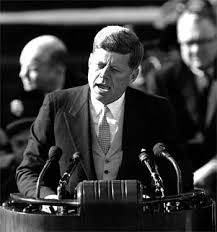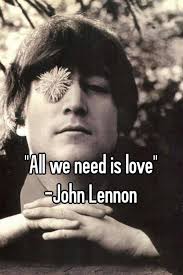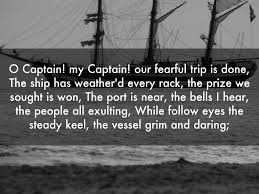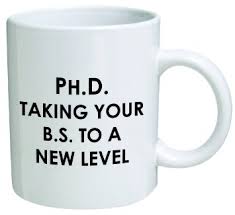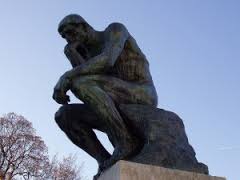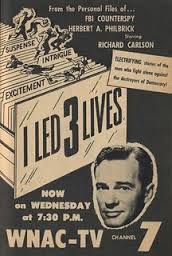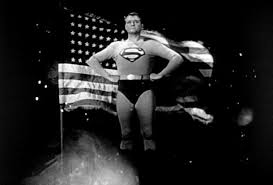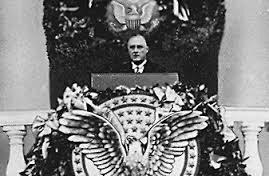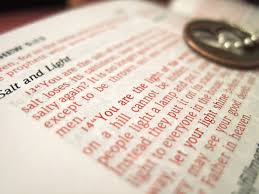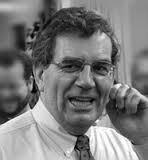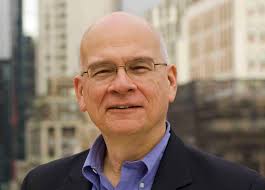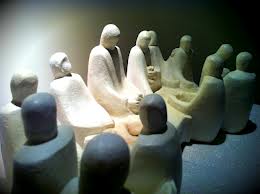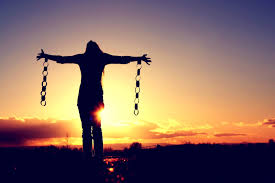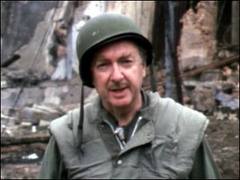Journey Post 38: Whither Freedom? The truly loved will know the truth
“… ye shall know the truth, and the truth shall make you free.”
“… with liberty and justice for all.”
There is a relationship between knowing the truth and being genuinely free. That’s the message of the well-known quote inscribed on the face of our CIA building outside Washington.
These days, one may legitimately wonder: how can we—or, can we—know the truth? We understand that the CIA quote, taken from the Gospel of John, expresses the necessity of accurate intelligence for our national security and freedom. But the quote does have a wider application that we all seem to recognize.
The reverse makes the principle plain: You can’t be truly free if you’re living a lie. Putting it this way makes clear that the principle applies to both our national freedom and our personal freedom.
There doesn’t seem to be much truth in evidence across America these days. Now that the party conventions have wrapped up and the presidential campaign is in full swing, one thing we can say for sure: it will get ugly and dirty. We won’t hear much truth. More alarming still, it will be increasingly difficult to find truth. Even the fact-check sites seem slanted.
The campaign does represent something true about the American scene right now: we are a divided country. According to polls, Americans are more deeply divided than ever before. Need I quote Lincoln (borrowing from Jesus), “A house divided cannot stand”?
I’d like to think that Americans are genuinely free. That’s probably my 1960s Kennedy idealism showing through. I’m terribly afraid we are not free—on many levels. We talk a lot about freedom at this time of year. I first sat down to write this post as Independence Day was approaching, but I trashed it. I just could not find anything worth saying that might be constructive. I was frustrated and disheartened.
Then we went to watch the fireworks. We were at a local high school with close friends. It was good just hanging out on the grass with nothing in particular to do except be together. There was a great band with a wide repertoire of 60’s-80’s music. Lots of families were gathered, like we were, to celebrate the moment. I was struck by all the young children chasing around without a care in the world, going off and coming back to their small safe spots with their families, giggling all the while.
Those children captured the moment for me. The attraction of American freedom and the American dream is that we can be free to build a better life for ourselves—and most especially for our children. America has been our safe spot.
That evening left me rethinking what it meant to be a free man in a free society. And I wondered what that inscription on the CIA building (“the truth shall make you free”) had to do with it. What makes America our safe spot?
Here’s what I came up with: Those who are truly loved will know the truth, and the truly loved will be free.
There are two types of freedom to focus on here, personal and national. Personal freedom stems from a longing deep within the soul of all peoples everywhere. It is there because it was implanted by our Creator. National freedom cannot be limited to liberty from foreign control. It only exists if the people themselves are personally free, and personal freedom is incomplete if there is not “justice for all,” as our Pledge says. Justice is not just a courtroom decision; true justice yields “shalom”: a good Jewish word which means wholeness and well-being, where everything is as it should be.
Above: Kunta Kinté
I recently watched the remake of “Roots,” the story of Alex Haley’s ancestors. Once captured, Kunta Kinté would never again be physically free, but his free spirit and identity as a Mandinka warrior remained. He passed on the heritage of freedom to his children, his wife, and others. It wasn’t just about him. Freedom was part of his identity–it’s a vital part of who we all are.
Personal freedom shines brightest in people who seek “liberty and justice for all,” who are other-centered, whose identity is centered in family and/or community. And it’s ugliest in those who are me-centered, selfish to the exclusion of others. Me-centered is not our western heritage of “rugged individualism.” This kind of “freedom” is actually narcissism—it’s about me and my rights. Narcissism is at epidemic proportions today, and we cannot blame it on our kids and their selfies. Our kids reflect us.
Freedom is a community project. That’s its nature: only a community (national or local) of free individuals can keep it in place. I’ve often thought on those men and women who fought to win or keep our freedom, whose physical lives were taken—given, really—so that we would be safe. That’s what my captain, David Walsh, did for us in Vietnam. I’m sure that, at some point, he certainly knew he could not survive. Our lives were worth it to him to give his.
Above: David Walsh
Captain Walsh’s example points to something missing from that CIA quotation. Knowing it’s taken from something Jesus said, you’d hardly expect to find it on a government building. But I’m going to write it down here, not as religious teaching but as it was: a principle about real life and relationships.
Here it is: “If ye continue in my word, then are ye my disciples indeed; and ye shall know the truth, and the truth shall make you free” (John 8:32).
To paraphrase, he was saying that those who put into practice what he was teaching them would show themselves to be genuine disciples (i.e., apprentices), and this would lead them to the truth that sets them free.
Before you think I’m about to go all religious on you, let me say this: As a Christian, I give full credibility to what Jesus said. My working assumption is that he knew what he was talking about. Actually, a lot of non-Christians, even atheists, agree that he was a great moral teacher. Their problem is with ascriptions of deity—plus the way we believers sometimes shove our religion into our politics and their faces.
Most of what Jesus had to say was about real life and relationships–not “religion.” An honest summary of his teaching would be encapsulated in the word “love,” the kind of love exhibited by my captain, love that is much more than kindness or tolerance or affection: it is self-giving, other-centered, even self-sacrificial. He lived it, died it—as did Jesus, by the way.
John Lennon said more than he knew in his song: “All we need is love.”
What is there about love that leads us to know the truth? I could list some things, and you could analyze it, study it, and try it–but you’d nearly always come up short.
Love is not cognitive. It’s something “learned” by experience in relationship with people: parents, siblings, friends, spouse, others. If you’ve ever been truly deeply loved, you know whereof I speak. We humans are designed to learn by experience that kind of love from our parents–right from the womb. Unfortunately, many/most of us have not. I didn’t. I had no clue. I grew up, like many, me-centered and very self-protective. That had a damaging effect on all my relationships, including with my wife and with God.
When you are truly loved, you can’t help but love back in response. This is not about you doing your best to love someone because you know you ought to. When you are truly loved, you cannot help but love that other person. You cannot do enough for them.
When you are truly loved, you can’t help but wonder how you ever deserved to be loved like this. That’s the point, I suppose: it’s not ever earned, just given, freely. Love takes you to places you’ve never been: it takes you out of yourself and your normal self-centeredness. That’s a love you couldn’t have ever imagined, because, like most everyone else on the planet, you know—inside—all the bad stuff about you that certainly makes you unlovable. The good news is that you no longer have to hide.
The truth that we learn in a relationship in which we are truly loved–and we love in return–is the truth about who we are and who the other person is. And it makes us realize that, somehow, incredibly, we are now free in a way we never thought possible.
For one thing, you are free to be yourself. You don’t have to worry about trying to “love yourself.” When you know you are loved, it’s okay to be yourself. You can risk what most of us humans seem unable to risk.
If you’ve seen the movie, “As Good As It Gets,” you saw this happen to Jack Nicholson, a guy who couldn’t deal well with his neuroses until he was loved by a waitress, (Helen Hunt). He made the discovery that love calls forth love in response (albeit imperfectly). Nicholson finally was able to say to her: “You make me want to be a better man.” Her love was the beginning of his freedom.
And, just in case you were waiting for the religious punchline, here it is, sort of: What happened with Jesus’s followers who put into practice what he taught was that they came to understand that they were truly loved by God in spite of who they were, and so they responded in love. (That’s what Christians believe the cross was all about.) They came to know the truth, and they were free.
If we want to be free as a nation, we need to be a national community of free individuals who know the truth. All we need is….

